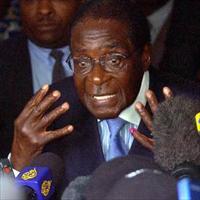ZIMBABWE: Hopes of a political settlement waning

The crisis in Zimbabwe is set to deepen, analysts said, as President Robert Mugabe appeared to be "digging in" by trying to wrest control of parliament on 25 August, and hopes of a transitional government are waning.
The convening of parliament and the appointments are a breach of a Memorandum of Understanding (MOU) signed by the ZANU-PF and the two factions of the MDC in July to pave the way for talks to resolve the political impasse, said Lovemore Madhuku, chairperson of the National Constitutional Assembly (NCA), an NGO lobbying for a new, people-driven constitution.
The MOU stipulated that none of the parties could make unilateral decisions before a deal for an inclusive government was announced, but talks being mediated by the Southern African Development Community (SADC) representative, South African President Thabo Mbeki, have been deadlocked over how power should be shared between Mugabe and Tsvangirai.
Mugabe's ZANU-PF backed a candidate from the smaller faction of the opposition Movement for Democratic Change (MDC-M) to be the speaker of parliament, against the candidate proposed by main faction, MDC-T, led by Morgan Tsvangirai.
In a surprise result, Lovemore Moyo, chairman of the Tsvangirai-led MDC, became the first opposition speaker since the country's independence in 1980.
However, Mugabe has also appointed three non-constituency members of the Senate and eight provincial governors without consulting the opposition.
"It should be borne in mind that the MOU is a political document, not a legally binding one, and ZANU-PF could feel at liberty to put it aside," Madhuku commented.
"As it is, it is likely that Mugabe will go ahead and announce a full cabinet, considering that he has already taken the first step by announcing provincial resident ministers [governors], and that could make the signing of a deal impossible," he added.
Mugabe lost the general elections on 29 March, and won the presidential run-off on 27 June as the sole candidate after MDC leader Tsvangirai withdrew because his supporters were being violently attacked.
Chris Mhike, a legal expert and political commentator, told IRIN that indications on the ground were that Mugabe was digging in and going for broke.
"The voting trends for the speaker's post indicate a purely party political agenda and not a national agenda," he said. "The fact that Mugabe appointed governors only from his party is another indication that the talks are in trouble."
Brian Raftopolous, a Zimbabwean academic and analyst, said Mbeki could call for a resumption of talks soon, as it seemed that Mugabe "will not give any ground. He [Mugabe] has forced the MDC MPs [members of parliament] to be sworn in, and that will see the impasse continue."
Economic crisis
Zimbabwe's economic crisis is set to worsen, Innocent Makwiramiti, a Harare-based economic analyst, told IRIN. Almost everything is in short supply and annual inflation has risen above 11 million percent.
"Hopes of an economic turnaround were pinned on a successful political deal. Given the direction in which things are moving, the economic crisis will worsen," Makwiramiti commented.
"I foresee a situation in which industry will grind to a complete halt in the next six months, thousands of people will join millions of other Zimbabweans who are living outside the country as economic refugees, and there will be more political tension."
Tension brewing
Signs of political tension have resurfaced, after a lull in the political violence that erupted following the March elections. Police briefly detained two members of parliament from the Tsvangirai-led MDC on 25 August.
The police also reported two bombings in the capital, Harare: in the first incident, earlier in August, several offices at Harare central police station were blown up; the second damaged a railway track 30km west of the city on 21 August.
Police commissioner general Augustine Chihuri recently admitted that they had not been able to establish who was behind the bombings, but hinted that disgruntled officers could be behind the police station incident.
 Back and Next - Back and Next
Back and Next - Back and Next See Also - See Also
See Also - See Also